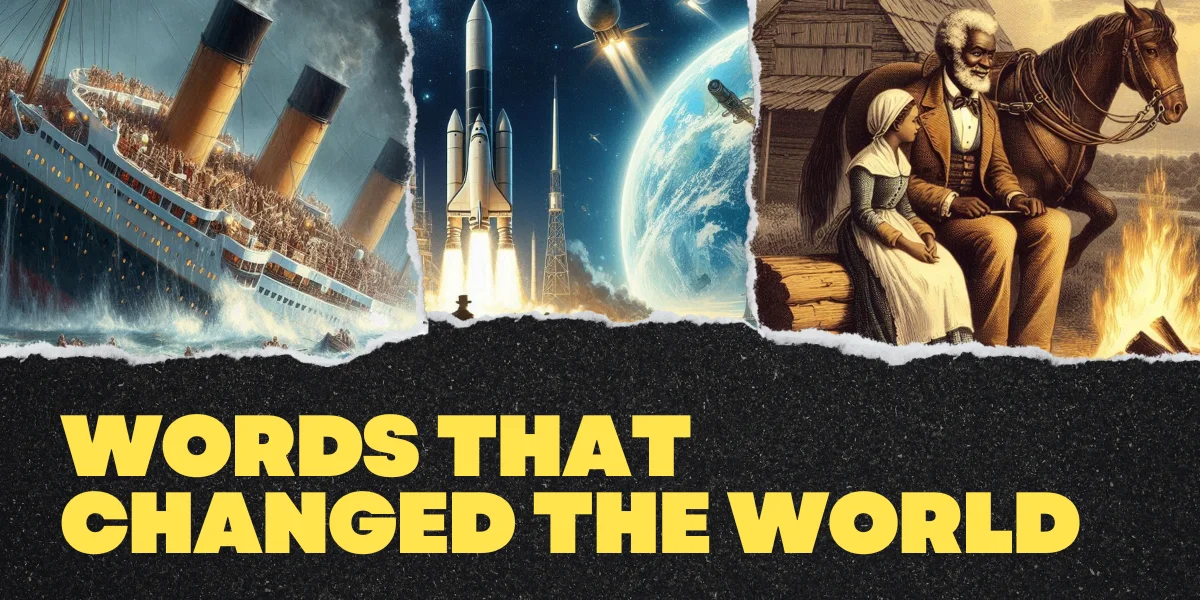I recently had the occasion to read Futility, or The Wreck of the Titan, written by Morgan Robertson. First, I’ll give you a synopsis of the novel, followed by some intriguing aspects I noticed.
The Titan, a huge and grand passenger ship, sets off on her first journey from the United Kingdom to America, confidently cutting through the waves. She is a symbol of human greatness, but disaster strikes when she collides with an iceberg, tearing a hole in her hull. Despite her size and strength, the Titan sinks into the cold sea. Unfortunately, there aren’t enough lifeboats, and many people are left to drown in the icy waters.
Wait… this tale bears a striking resemblance to the Titanic. Could this be a depiction of that infamous accident? I had the same question as everyone else!
But here’s the twist: this novel was published in 1898, fourteen years before the Titanic disaster!
While historical events can be fictionalized into novels, how does fiction ever predict history? I am astonished by the similarities between the novel and the real-life tragedy.
According to the book, the ship is named the S.S. Titan. In reality, it was the RMS Titanic. Both ships were approximately 250 meters in length, both began their maiden voyages from Britain to America, and both accidents occurred in April. In both cases, there were insufficient lifeboats, and the disasters were caused by collisions with icebergs in the North Atlantic Ocean.
After the Titanic’s sinking in 1912, Futility gained popularity in both the USA and the UK. Many people asked Morgan Robertson whether he had any foresight regarding the Titanic disaster. The author simply refuted this by saying, “The only similarity I observed is the disregard for passenger safety by shipping companies!”
True! If shipping companies had learned lessons from this novel, the tragic Titanic disaster might have been avoided. In this case, literature seemingly scripted history!
This realization prompted me to think of several other literary works that have left a profound mark on history.
Take Jules Verne’s From the Earth to the Moon (1867) and its sequel, Around the Moon (1869), for instance.
Here’s a brief synopsis: Three scientists from the Baltimore Gun Club travel in a spacecraft called Columbia from Earth to the moon, take a round trip around the moon, and return to Earth. The novel describes the scientists launching their expedition from Tampa Town, Florida.
A century later, in a remarkable coincidence, astronauts Neil Armstrong, Edwin Aldrin, and Michael Collins launched the Apollo spacecraft from Florida. Neil Armstrong, of course, made history as the first human to walk on the moon.
During the return journey to Earth, Neil Armstrong famously said: “A hundred years ago, Jules Verne wrote in his novel that his spaceship Columbia took off from Florida and landed in the Pacific Ocean after completing a trip to the moon. It seems appropriate to us to share some reflections as the modern-day Columbia completes its rendezvous with the planet Earth and the same Pacific Ocean.”
In 1961, with visionary resolve, President John F. Kennedy made the daring promise that American scientists would leave their footprints on the moon within ten years. The decision to focus on the moon as a target for space exploration was inspired in part by the imaginative vision laid out in Jules Verne’s novels.
This is why Neil Armstrong alluded to these novels during his return journey.
It’s remarkable to realize how literature can influence our lives, even after decades or centuries! Literature innovated history!
Another novel that has left a profound imprint on American society and its social conventions is Uncle Tom’s Cabin, written by Harriet Beecher Stowe and published in 1852.
At that time, slavery was widespread in America, and enslaved individuals were subjected to severe mistreatment. Buying, selling, and auctioning human beings was commonplace, and slaves were forced to work relentlessly. Laws and government policies were heavily biased in favor of slave owners, and brutal penalties were imposed on those who tried to escape. Slavery, particularly for those between the ages of 20 and 45, was in high demand, and the economy thrived on the backs of the enslaved, giving the government no incentive to abolish the practice.
Harriet Beecher Stowe, a Connecticut-born teacher and active abolitionist, participated in many abolitionist seminars. Her novel, Uncle Tom’s Cabin, was an antislavery sentimental novel that sparked widespread support for abolition.
Uncle Tom, an African-American slave, is the novel’s central character. His owner, a kind-hearted man struggling with financial difficulties, decides to sell Tom and Eliza, another slave, who has a five-year-old child. When a broker arrives, Eliza overhears that the broker only wants to purchase her and Tom, insisting that the child be sold separately. This brutal scene depicts the heartless separation of mother and child for the slave market’s profit.
Throughout the novel, Uncle Tom is repeatedly sold to different owners, enduring constant suffering. Yet, he remains steadfast in his Christian faith, reading the Bible, praying daily, and showing kindness to all around him. The novel invites readers to reflect on who holds a closer place to the Almighty—the slaveholders or the slaves?
Uncle Tom’s Cabin deeply moved readers and sparked support for abolition. Meanwhile, many pro-slavery supporters in the Southern states responded by publishing 20-30 anti-Tom novels. However, these counterarguments had little effect.
Eight years later, Abraham Lincoln was elected President and eventually abolished slavery, much to the ire of the Southern states, leading to the American Civil War. After Union forces defeated the Confederates, slavery was completely abolished.
When Lincoln met Harriet Beecher Stowe, he famously remarked, “So this is the little lady who started this Great War!” There’s no doubt that Uncle Tom’s Cabin played a transformative role in reshaping societal attitudes toward slavery, paving the way for a more just and harmonious society.
These three examples vividly illustrate the profound impact of literature on human lives. Literature exposes societal flaws, spurring change and innovation. It acts as a catalyst for societal reform, challenging entrenched norms and guiding communities toward greater justice and understanding.
Indeed, literature has always impacted history!

